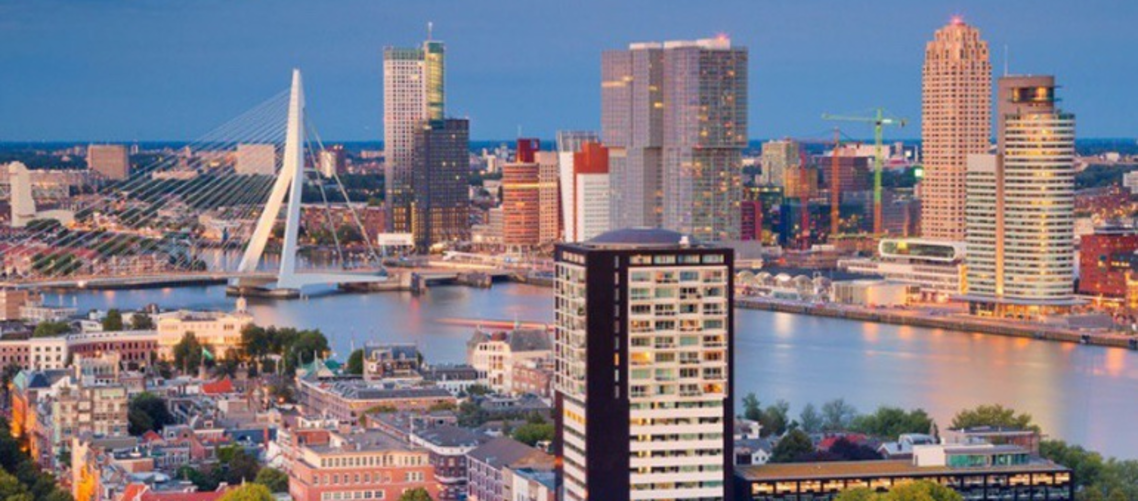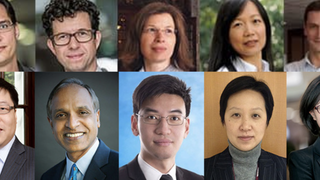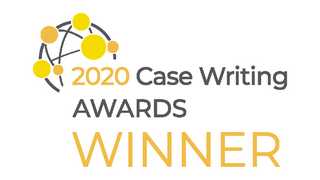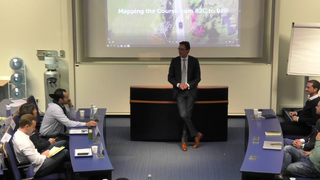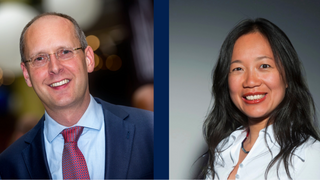The business case, Digital City Rotterdam: Open Urban Platform describes the opportunities and challenges encountered when the City of Rotterdam created a digital platform for sharing, using, and leveraging data. ECDA conducted some of the research for Rotterdam as part of the EU-funded RUGGEDISED project. RUGGEDISED aims to develop and implement smart solutions for energy, e-Mobility, and ICT to create smart, resilient cities with the goals of improving the quality of life of citizens, reducing the environmental impacts of activities, and creating a stimulating environment for sustainable economic development.
Rotterdam’s digital transformation
The case devotes particular attention to the issues of platform purpose, platform governance, financing, trust, and citizen engagement, and is written by three RSM academics; Dr Samaneh Bagheri, Professor Tobias Brandt, and Dr Marcel van Oosterhout who is associate executive director of ECDA, one of RSM’s specialist research centres.
Rotterdam’s digital transformation, underpinned by the EU-funded RUGGEDIZED project, was based on data, some of which was researched by ECDA; analysing the network of electric buses. ECDA simulated the transformation to electric buses and explored the impact of electric buses and smart charging on service levels, costs and CO2 footprint, gathered data on the optimisation of charging the buses so it could link demand for electricity of electric buses to supply of renewable energy; studied the governance and design of urban data platforms and the role of municipalities; and developed new business models for companies engaging with urban data platforms.
Free to download and use
The case is freely available to the general public via The Case Centre (or within Erasmus University via RePub). ECDA and CDC decided to make the case freely accessible so that information captured in the case can be used by educators, students, and professionals working on smart and sustainable cities around the world. It’s aimed at all students, businesses, and communities interested in knowing how a digital transformation happens.
Education based on research
Dr Van Oosterhout: “The development of this case is an important step to disseminate insights from the EU-funded project Ruggedised to a wider audience of students and practitioners worldwide, to stimulate critical thinking in how we design the digital equivalent of our cities with the objective to create social value, make cities more sustainable, while keeping prosperity and stimulating innovation.”
Dr Bagheri says: “The case can be used to facilitate the discussion on how cities can improve or accelerate digitalisation. It emphasises how different technologies can be utilised and how stakeholders, such as the municipality, citizens and project developers, can work together to develop a successful digitalised city.
“In order for students to understand the importance of these aspects, teachers can have them play different stakeholders involved in the development of a smart city. Through role-plays, students can learn how to build trust and collaboratively develop ideas for the improvement of their city.”
A digital city is not just about technology
The case devotes particular attention to the issues of platform purpose, platform governance, financing, trust, and citizen engagement – all of which influence the adoption of an open urban platform by city management and the possibilities for innovation in the City of Rotterdam. The case demonstrates that technology is only a small part of creating a successful digital platform in a city context, but especially other more social dimensions are strategically important, for example, a clear purpose on becoming a digitalised city, designing a good governance, and collaboration and trust building among stakeholders.
There are more free RSM cases in the CDC catalogue www.thecasecentre.org/rsmfreecases.
RSM Case Development Centre
Business students and seasoned business experts can learn from the experiences of other real-life organisations and decision-makers. The Case Development Centre at RSM supports case-based management education by turning exceptional business and management experiences into powerful learning tools. The Centre connects world-class research, education, and business by developing high-quality case studies.
Erasmus Centre for Data Analytics
The purpose of the Erasmus Centre for Data Analytics (ECDA) is to facilitate the Erasmus University Rotterdam and its public and private partner organisations in preparing society for a data-driven future, human-centred, towards a sustainable world. It supports organisations by turning data into business and societal value via over 25 areas of expertise, including inclusive smart cities and communities, accountability and fairness of AI and energy and sustainability.
